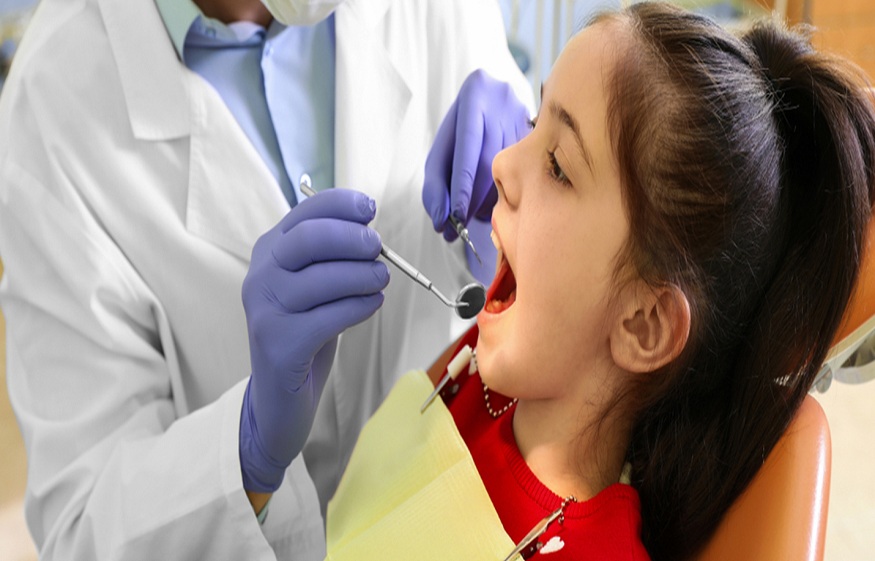As a parent, you want the very best for your children, especially when it comes to their health. While you likely focus on their diet, education, and emotional well-being, dental care can sometimes be easy to overlook. Still, your child’s oral health plays a big role in their overall development.
style="display:block; text-align:center;" data-ad-layout="in-article" data-ad-format="fluid" data-ad-client="ca-pub-8288407026647732" data-ad-slot="7132473077">
By helping them build good dental habits early on, you’re protecting their teeth now and setting them up for a lifetime of healthy, confident smiles.
Why Early Dental Care Matters
Baby teeth might be temporary, but they are vital. They help children chew, speak clearly, and maintain space for permanent teeth. Neglecting early oral care can lead to cavities (also called “early childhood caries”), which are more common than asthma in children.* According to the Centers for Disease Control and Prevention (CDC), about 50%of children have cavities by the time they reach kindergarten. Untreated dental issues can cause pain, infections, and even affect school performance.
When to Start
Dental care should begin even before your baby’s first tooth appears. Gently wiping the gums with a clean, damp cloth after feedings helps prevent bacteria buildup. Once teeth erupt, usually around 6 months,* use a soft-bristled infant toothbrush and a tiny smear of fluoride toothpaste (about the size of a grain of rice). By age 3, you can increase this to a pea-sized amount.
The American Academy of Pediatric Dentistry* recommends that a child see a dentist by their first birthday or within six months of their first tooth erupting. Early visits familiarise your child with the dental environment, making future appointments less stressful and more routine.
Building Healthy Habits at Home
Brushing should be done twice a day, ideally after breakfast and before bed. Until around age 6 or 7, children typically need help brushing to ensure all surfaces are cleaned thoroughly. Flossing should begin once any two teeth touch. Sugar intake should be monitored. Sticky candies, sugary drinks, and frequent snacking can increase the risk of decay.
Encourage a balanced diet rich in fruits, vegetables, whole grains, and dairy products. Drinking fluoridated water also helps strengthen enamel. If your water supply isn’t fluoridated, talk to your dentist about fluoride supplements.
Common Concerns for Parents
Thumb sucking and pacifier use are normal in infancy, but if they persist beyond age 3 or 4, they may affect tooth alignment or jaw development. Consult your dentist if you’re concerned. Similarly, children who grind their teeth at night (bruxism) often outgrow it, but it’s worth discussing during checkups.
Injuries are also common, especially among toddlers and young athletes. Using mouthguards for sports and child-proofing your home can prevent many accidents.
Partnering with Your Paediatric Dentist
A paediatric dentist isn’t just there to treat cavities. They are an important partner in preventive care. Regular checkups every six months help monitor your child’s dental development, catch potential issues early, and encourage healthy habits. Be open to asking questions, sharing concerns, and working together with your dental care team to support your child’s long-term oral health.
Healthy smiles truly begin at home with your guidance, encouragement, and care. By making dental health a priority from an early age, you are giving your child one of the most lasting gifts: the confidence and comfort of a strong, happy smile.
For expert paediatric support and reliable dental care, you can trust Apollo Cradle & Children’s Hospital, widely regarded as having some of the best paediatricians in Chennai. The hospital offers a child-friendly environment, advanced medical facilities, and a team dedicated to your child’s overall well-being, making it a dependable choice for families seeking complete care.
Apollo Cradle also has some of the best paediatricians in Delhi NCR, Hyderabad, Bangalore, and other prominent locations, offering expert and compassionate care for you and your little one through every stage of growth.

